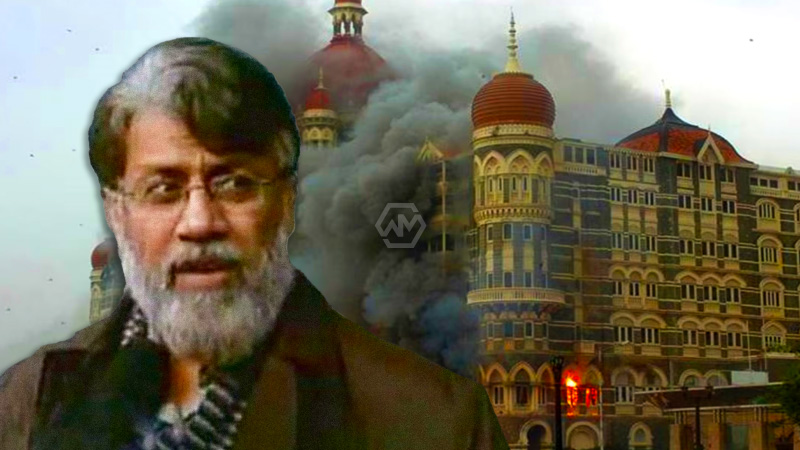- Tahawwur Rana, accused in the 26/11 Mumbai attacks, is being extradited to India from the US.
- Rana also plotted a brutal terror attack in Denmark known as the “Mickey Mouse Project.”
- Authorities plan to produce him in Delhi court after his 7 PM arrival on April 10.
Tahawwur Rana’s return to Indian custody marks a significant step in addressing the unfinished business of the 2008 Mumbai terror attacks.
Beyond the Mumbai attacks, Rana’s name is also tied to a foiled terror plot known as the “Mickey Mouse Project.” This plot aimed at targeting the Danish newspaper Jyllands-Posten for publishing controversial cartoons of Prophet Muhammad.
The Chilling Reach of Tahawwur Rana: Mumbai to Copenhagen
Rana’s extradition ends a prolonged legal battle in the United States, where he fought against being handed over to India. His ties with David Headley proved central to both the Mumbai attacks and the Copenhagen plot. These connections established Rana as a key facilitator in international terror conspiracies. His arrival in India is expected to open new leads into previously unexplored aspects of the 26/11 investigation.
The Mickey Mouse Project, cloaked under an almost comical codename, was anything but humorous. Headley testified that the plan involved storming the Danish newspaper’s Copenhagen office with weapons and explosives. The ultimate goal was publicly executing staff members. This was a reaction to what extremist groups saw as a grave insult to Islam, sparked by controversial cartoons published in 2005.
Authorities believe Rana used his immigration business as a front to help Headley travel under false pretenses. This allowed reconnaissance missions in India and Europe. This dual-role—legitimate businessman on the surface, covert terror accomplice beneath—made Rana difficult to detect early on. It wasn’t until Headley’s arrest in 2009 that the full extent of Rana’s involvement surfaced.
With his extradition, India will likely seek a deeper probe not just into his role in Mumbai but also into whether Rana acted independently or as part of a larger network. His connections with Pakistani intelligence and terror outfits will now be subjected to thorough scrutiny. India’s counterterrorism agencies see this as a critical moment to strengthen global cooperation in tackling transnational terror.
Tahawwur Rana’s extradition is more than a procedural victory. It’s a crucial opportunity for India to uncover the broader networks of international terrorism that span continents.
“The greatest threat to freedom is the absence of accountability.” – Wendell Phillips



